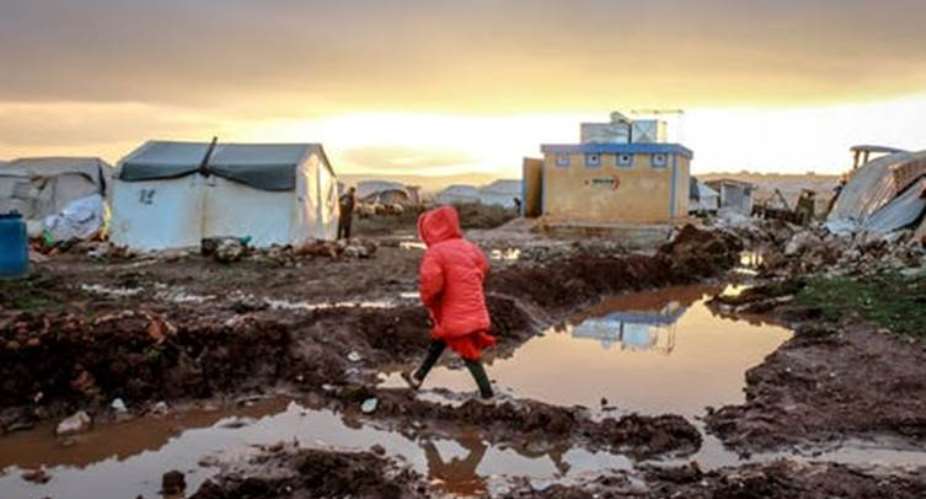Johannesburg, 27 May 2021: Devastation. That is what we have experienced in Nairobi and other parts of the country in the last few weeks. All because of floods.
And floods have a devastating effect on us all.
The ongoing heavy rains have led to loss of human life, damage to property, destruction of crops and loss of livestock. Images of families forced to move out of their houses in parts of the city, their effects washed away have swarmed the mainstream and social media.
Floods are causing a negative impact on the country’s economy. Communication links and infrastructure such as power plants ,roads and bridges are damaged, disrupting normal life and putting some economic activities to a standstill as people are forced to move. The collapse of buildings due to the heavy pressure brought about by the flood waters has stagnated businesses from being able to operate..
Most drainage systems within the city are not well maintained resulting in a lot of sewage spills over the rainy seasons. This is a serious health hazard. Bacteria and viruses cause disease, trigger allergic reactions and remain hazardous long after the flood waters have subsided.
Similarly, disruption to industry can lead to loss of livelihoods. These are the people that make the economy tick. The normal folk like you and I that help grow the economy of Kenya.
Damage to infrastructure is also causing long-term impacts, such as disruptions to the supply of clean water, wastewater treatment, electricity, transport, communication, education and health care. Loss of livelihoods, reduction in purchasing power and loss of land value in the floodplains is leaving individuals and communities more economically vulnerable.
For instance, this May alone, Kenya Red Cross Secretary General Dr. Asha Mohammed, said on 15 May 2021 that 6,800 families have been left homeless after their homes were submerged over recent days. Dr. Mohammed said the flooding has completely destroyed over 400 homes and damaged many more. Vehicles were submerged, streets swamped and communities were marooned. Four people died in the flooding in Kibera on the evening of 13 May.
The long-term psychological impact of this is traumatising for victims and their families. The thought of children becoming orphaned with no parents to look after them is especially distressing.
With a growing concern for the impact of flood damage, we need to strongly consider how this destruction can be avoided. And, there are sustainable solutions available in country that could prevent such devastation.
Of course, we have to protect wetlands and restore rivers to their natural courses but preventing floods also involves careful urban planning and home-building practices.
We must accept that the sewer systems within the Nairobi metropolis are compromised, either due to poor workmanship or wrong material choices.
One major cause of flooding in urban areas like Nairobi is the clogging of sewer systems. These sewer systems are prone to clogging up with waste, debris, sediment, tree roots and leaves. When we look at the more traditional sewer pipes, we know that they have a tendency to corrode and break, which only serves to compound the problem. It’s time we look at a more sustainable alternative like thermoplastic sewer pipes and systems that can add value and reduce whole life costs such as maintenance and cleaning.
Further, to improve water management and protect the sewer system from damage, cities are beginning to revamp their underground drainage systems – by separating rainwater from the sewer system. This separation enables the wastewater treatment plant to function properly, without it being overburdened by large quantities of stormwater. With heavy rainfalls in Kenya this solution can be a gamechanger in cities like Nairobi too.
It’s important that the central government, the county government and the Nairobi Metropolitan Services work closely with the private sector to help mitigate any future threats that may be caused by flooding and formulate a long-term solution.
By Simon Thomas, international consultant and board member at Megapipes Solutions Limited





 We’ll no longer tolerate your empty, unwarranted attacks – TUC blasts Prof Adei
We’ll no longer tolerate your empty, unwarranted attacks – TUC blasts Prof Adei
 Bawumia donates GHc200,000 to support Madina fire victims
Bawumia donates GHc200,000 to support Madina fire victims
 IMF to disburse US$360million third tranche to Ghana without creditors MoU
IMF to disburse US$360million third tranche to Ghana without creditors MoU
 Truck owner share insights into train collision incident
Truck owner share insights into train collision incident
 Paramount chief of Bassare Traditional Area passes on
Paramount chief of Bassare Traditional Area passes on
 Two teachers in court over alleged illegal possession of BECE papers
Two teachers in court over alleged illegal possession of BECE papers
 Sunyani: Victim allegedly shot by traditional warriors appeals for justice
Sunyani: Victim allegedly shot by traditional warriors appeals for justice
 Mahama vows to scrap teacher licensure exams, review Free SHS policy
Mahama vows to scrap teacher licensure exams, review Free SHS policy
 Government will replace burnt Madina shops with a new three-story, 120-store fac...
Government will replace burnt Madina shops with a new three-story, 120-store fac...
